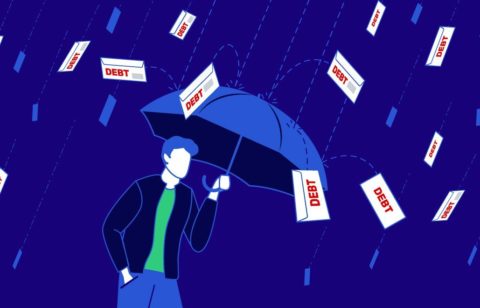Are you drowning in debt? If so, you probably wish your debts would simply disappear. You might even want fate to give you a giant “do-over.” The good news is that debt cancellation is possible in some situations. Here’s a closer look at how debt cancellation works and when you can cancel a debt.
How Does Debt Cancellation Work?
Debt consolidation loans or credit counseling programs help lower interest rates on some debts. But debt cancellation can actually reduce or eliminate debt you owe without declaring bankruptcy. It’s also referred to as debt settlement. Some debts that may be eligible for debt cancellation include:
- Credit card debt
- Store credit lines
- Medical bills
- Court judgments
- Student loans
According to the FTC, most people who seek debt cancellation use a for-profit company to negotiate with creditors on their behalf. The goal is to get an agreement where you pay a “settlement” lump sum. This amount is less than what you owe.
Paying the settlement ends your need to pay the rest of the debt. To get funds for the settlement, debt relief companies usually ask you to save money each month. The money you save goes into an account. Then, money from the account will be used to pay the settlement amount. During this process, you may be asked to stop making payments to your creditors. While this puts more pressure on the creditors to make a deal, it will negatively impact your credit score. The late payments will also stay on your credit report for several years. However, these negative consequences are still less severe than bankruptcy.
Student Loan Debt Cancellation
Debt cancellation might be part of a formal program in some situations. For example, students with federal loans may be able to get some or all of their debt canceled in exchange for participating in certain programs.
Debts for medical school and other health-profession studies may also be canceled. This is for those who agree to work in ways that help underserved people. An example would be completing a nursing degree and then working for a set time in an underserved area.
The Public Service Loan Forgiveness Program cancels student loan debt for certain graduates who work for the government or a nonprofit. Teachers who work full-time for five years or more in a low-income school may also get some debt canceled.
How Debt Cancellation Affects Your Taxes
Having debt canceled can be a relief, but it may also affect your taxes. In many cases, canceled debt is considered taxable income.
The IRS treats forgiven debt of $600 or more as income, meaning you may owe taxes on it. If your lender cancels at least $600 of debt, they will send you a Form 1099-C (Cancellation of Debt). However, even if the forgiven amount is less than $600, you still need to report it on your tax return.
That said, some canceled debts are not taxable. One key exception is insolvency—when your debts are greater than your assets. To determine if you meet the insolvency rule, use the worksheet in IRS Publication 4681.
Some student loan forgiveness programs are also tax-free.
Other Situations Where Canceled Debt May Not Be Taxed:
- The debt was discharged in bankruptcy.
- A friend or family member lent you money and later forgave the debt.
- The debt was tied to a farm or real estate business, and you meet IRS qualifications.
Debt Cancellation Options
One option for debt cancellation is to negotiate directly with your creditors. The Consumer Financial Protection Bureau also suggests working with a nonprofit credit counselor.
Another option is to work with a debt relief company. If you do this, make sure you know your rights. The FTC says debt relief companies cannot charge you any fees until:
- The company changes the terms of at least one of your debts. This could be by renegotiating, settling, or reducing the debt.
- The company reaches an agreement between you and the creditor that you agree to accept.
- You make at least one payment to a creditor using your new repayment plan.
Be wary of any company that charges you fees upfront. Also watch out for promises that sound too good to be true. Finally, don’t trust a company that isn’t willing to explain its process to you.
Getting Canceled Debt off Your Credit Report
However you settle your debt, make sure it no longer appears on your credit report. There’s a chance that even after a creditor forgives a debt, it may still show up as “collectable” on your credit report. This can happen when the creditor does not tell the credit-reporting agencies that the debt has been forgiven.
In a worst-case situation, a debt collector may keep trying to collect the debt. If this happens to you, contact an attorney specializing in consumer protection. They can help you solve the issue or give legal advice.
Final Thoughts
Debt can feel overwhelming, but there is a way forward. Whether through negotiation, forgiveness programs, or legal protections, there are options to reduce or eliminate what you owe.
Want to learn more about how to become debt-free? Take the first step by checking if you qualify for debt relief today!









